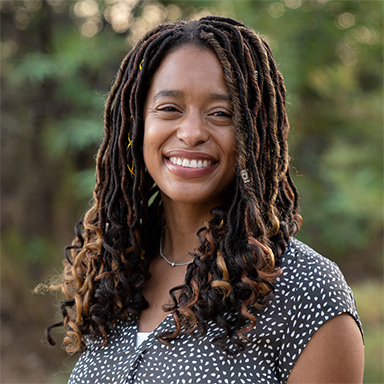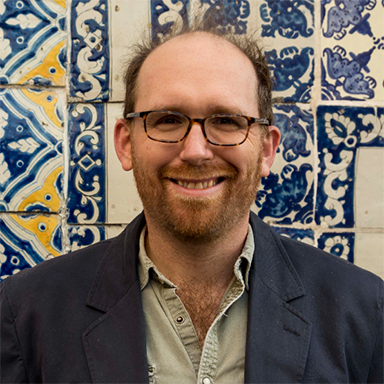Alex Young
Honors Faculty Fellow
What is the focus of your scholarship and how does it shape your teaching at Barrett?
My scholarship focuses on how the contemporary literature and culture in the United States—especially the Western United States—has been shaped by the transnational history of settler colonialism and Indigenous resistance. I draw on my research to teach upper division courses on topics including the Western genre on film and United States gun culture. My focus on our regional culture in its transnational contexts also shapes how I teach The Human Event: as I teach the multicultural history of human history and thought from prehistory to the present, I also work to bring students from the global to the local as we consider texts closer and closer to our lives here in Arizona.
What are you teaching in The Human Event this year that you’re especially excited about?
Always a difficult question to answer because I’m excited about a lot of them! In HON 171, the first half of The Human Event, I enjoy teaching Shakespeare’s Merchant of Venice, which engages questions of ethnic difference and the law in ways that feel startlingly contemporary. In HON 272, I’ve been teaching Lauren Redniss’s multimedia nonfiction book Oak Flat: A Fight for Sacred Land in the American West, which helps students relate the global histories we have been studying to the voices of everyday contemporary Arizonans navigating a conflict in our own backyard.
What is an experience that you’re looking forward to in the year ahead at Barrett?
I’m excited to be working with a new research center at ASU, headed by sociologist Jennifer Carlson, called the BRIDGS Center: Bringing Research & Innovation into the Debate on Guns in Society. I’m directing several Barrett seniors working on thesis projects about gun culture, and to be able to put them in touch with Professor Carlson and the many top gun researchers she plans to bring to ASU in the coming year will be really exciting. To be able to coach top-notch students through the research process in conversation with leading scholars from around the country: that really sums up, for me, the most exciting part of the Barrett experience.
Could you share a student success story with us?
One of the cool things about Barrett is that it fosters unlikely interdisciplinary mentorship relationships. I work in the humanities, but I have had close relationships with students going on to work in law, social work, and various medical fields. When I started here, I was surprised when the first medical school applicants asked me for letters of recommendation, but now I relish the opportunity to help round out medical school applications by speaking to the applicants’ communication and critical thinking skills. Recently, Sarah Lopez, a student I had the honor of working with from HON 171 to her thesis, was admitted to The Mayo Clinic’s medical school, where she’s pursuing her dream of pursuing a career in women’s health – I continue to be inspired by Sarah’s story!
View profile




